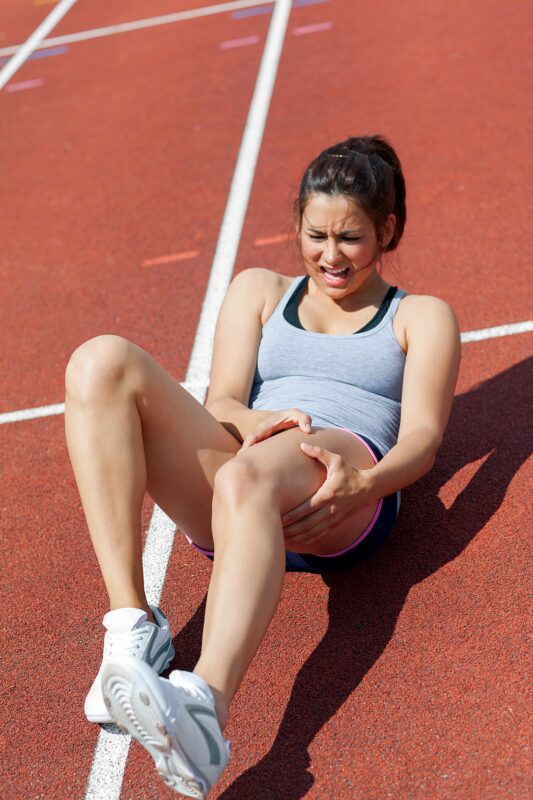Eating right and practising healthy food habits helps to ward off body ailments and boost your health, states Suman Aggarwal of Self Care, the natural way. To help you gain more insight, we present a checklist of super foods that act as both prevention and cure for common ailments.
It’s a known fact that fresh, healthy foods help you stay fit and in good physical shape in the long run. Did you also know that there are some wonder foods that help you beat some illnesses? Here’s a detailed account of some ailments, their causes and a list of foods you should eat to cure them.
Ailment: Low energy levels and fatigue
Causes: Insufficient intake of proteins and decreased levels of B12. It could also be due to low iron levels, vitamin D deficiency, underlying hormonal imbalance and elevated TSH (Thyroid stimulating hormone) levels in the body.
What should you do:
- Include some form of proteins in your meals like milk and milk products. Vegetarians should have dals while non-vegetarians should include chicken, fish and eggs in their meals.
- Check your vitamin B12, D3 and iron levels and add a supplement in case the levels are insufficient.
- Keep a check on your thyroid as hypothyroidism can cause fatigue.
Ailment: Acidity
Causes: Long meal gaps, increased intake of tea or coffee, over eating, eating fast or late night eating, excessive consumption of alcohol or spicy and fried foods are the main culprits. Carminatives like peppermint, cigarette smoke, tobacco, nicotine and certain drugs like sulfa and steroids also cause it.
What should you do:
- Avoid consumption of tea or coffee.
- Have a glass of warm water with juice of half a lime with two tsp honey first thing in the morning.
- Soak 7-8 yellow raisins (munakkas) in water overnight and have it first thing in the morning. Raisins have high alkaline properties and balance the acid in the body when consumed.
- Eat a banana daily before 4 pm.
- Chewing on basil (tulsi) leaves gives immense relief in nausea and gas.
- Boil one cup of water and add one tsp of aniseed (saunf) to it. Cover and leave it overnight. Strain the water in the morning and add one tsp of honey to it. Consume this mixture thrice a day.

Ailment: Thyroid
Causes: Stress levels can lead to increased thyroid levels. Calcium, magnesium and protein support the thyroid function. Deficiency of any of these causes thyroid. Opting for fat-free diets could have adverse effects on the thyroid gland.
Low iron and B12 levels can also lead to hypothyroidism.
What should you do:
- Limit the intake of vegetables such as cabbage, cauliflower, rapeseed leaves (sarson), raddish and turnips as much as you can.
- Avoid grains such as soybean, millet (bajra), peanuts and lentils (masoor).
- All neck movements (sideways, upwards, downwards, rotation) should be done every day but at a slow pace.
- Drinking bottled mineral water helps to bring down TSH levels naturally.
- Ensure you have iron and vitamin B12 supplements.
- Take co-enzyme Q10 supplements to support the thyroid gland.

Ailment: Iron deficiency
Causes: Following an iron deficient diet and increased intake of tea, coffee and wine hampers the iron absorption from food. Vitamin C deficiency and excessive chewing of betel nut (supari) are the other causes. Heavy bleeding during menstruation, which leads to blood loss, also results in a dip in iron levels.
What should you do:
- Eat iron-rich foods with vitamin C. For example, squeeze lime juice on meat, dals, vegetables and fruits before consuming them.
- Include iron-rich foods such as avocado, lentils, dried apricots, sunflower seeds, sun dried tomatoes and roasted pumpkins, etc. in your diet as it aids hair growth.
- Take one tbsp of soaked garden cress seeds (haleem seeds) with a glass of lime water every day.
- Include foods like soybean, moth beans, Bengal gram, rice flakes, rice puffs, bajra, black currants, cauliflower greens, avocado, lentils, dried apricots, etc, in your diet.
- Take iron supplements, if required.
- If you are bleeding excessively during menstruation, make sure you have an iron supplement.
- Have tea or coffee three hours after having lunch and dinner.
Ailment: Constipation
Causes: Lack of fluids and fibre in the diet, lack of exercise and increased intake of processed
foods and refined flour coupled with a sedentary lifestyle and increased consumption of coffee
causes constipation.
What should you do:
- Drink 8-10 glasses of water daily.
- Make sure that you have 3-4 servings of vegetables and fresh fruits (especially edible peelings) every day. Consume at least two of the following: vegetables such as fenugreek leaves, lady finger, etc. and fruits like apple, banana, pomegranate, guava, etc.
- Avoid processed foods and refined flour and include whole grains in your diet.
- Regular exercise helps the digestive system stay active and healthy. Walk for 45-60 minutes every day.
- Make sure one of your meals is rich in pulses as they are full of soluble fibre.

Ailment: Hair fall or thinning of hair
Causes: Lack of vitamins (especially vitamin B6, iron and folic acid) in diet, excessive intake of protein powder supplement (more than 30 gm/day), medical conditions like thyroid, high prolactin and insulin resistance, stress, anxiety and sudden shock, hereditary factors, prolonged illness (like typhoid, chronic cold, influenza and anaemia), poor blood circulation, excessive fruit sugar (fructose), can cause balding on the sides of the forehead, thinning of hair and hair fall. Consuming fruits on empty stomach also leads to
this condition.
What should you do:
- Yoghurt is the best medicine to stop hair fall, so add it to your diet and consume two portions every day
- Supplements containing zinc, selenium, biotin and saw palmetto should be taken as they help reduce hair fall.
- Eat a handful of sesame seeds daily. As they are rich in magnesium and calcium, they aid hair growth.
- Include iron-rich foods such as avocado, lentils, dried apricots, sunflower seeds, sun dried tomatoes and roasted pumpkin seeds in your diet.
- Also include wheat germ, oatmeal, mushrooms, cabbage, beetroot, bottle gourd, amla, soya beans and honey in your daily meals.
- Drink coconut water every day.
- Do not use harsh shampoos.
- Cut down on alcohol and smoking. Avoid prolonged fasting.
- Avoid consuming fruits on an empty stomach.
Ailment: Chronic back pain
Causes: Excess weight can increase stress on the soft tissues. Low B12, lifting heavy objects and standing in one position for long hours are other likely causes. Lack of proteins also make the back muscles weaker.
What should you do:
- Make sure the protein intake is sufficient in your diet.
- Do physiotherapy to strengthen your back muscles.
- Include Vitamin B12 and Vitamin D3 supplements in your diet.
- Increase the intake of salmon, tuna or cod liver oil and full fat milk.
- Rub garlic oil on your back to get relief.
Ailment: Dry and patchy skin
Causes: Insufficient protein intake, lack of vitamins such as B6, biotin, vitamins C and A, low intake of essential fatty acids (EFAs), medical conditions such as high prolactin and insulin resistance coupled with stress, worry, anxiety and pollution causes dry and patchy skin.
What should you do:
- Include protein-rich foods such as milk, curd, buttermilk, eggs, chicken and fish in your diet.
- Consume supplements including biotin and vitamin B6.
- Include vegetables rich in Vitamin A and vitamin C rich foods in your diet such as amla, lemon, oranges, etc.

Ailment: Knee pain
Causes: Excess body weight, vitamin D3 and calcium deficiency, over exertion due to weight training, high uric acid levels, insufficient protein intake and lack of fats erode the cartilage in your knee joints.
What should you do:
- Include dairy products in your diet like milk, curds, buttermilk and paneer.
- If your vitamin D levels are low, take proper guidance for supplementation.
- Consume a vitamin called Glucosamine that helps to relieve pains and aches.
- Turmeric has a medicinal property to reduce knee pain.
- Have a salmon fish oil supplement.
- Do physiotherapy.
Ailment: Muscle cramps
Causes: Lack of proteins in diet, overuse of muscles, dehydration, strain on muscles, fatigue, low blood levels of calcium, magnesium, potassium, less intake of vitamin D3 in the diet and low blood supply to legs and feet can cause cramps.
What should you do:
- Supplement your diet with calcium-rich foods such as milk, ragi and curd, etc. Women above 40 should consume calcium supplements after consulting a nutritionist.
- Have magnesium-rich foods like legumes, nuts, fish, whole grains, etc.
- Keep a check on your vitamin D3 levels as it helps to absorb calcium in the body.
- Pregnant women should take calcium supplements and include minerals in their diet.
- Also have potassium-rich foods like potatoes, dark leafy vegetables, avocados, etc.
- Increase your fluid intake and keep yourself well hydrated.


